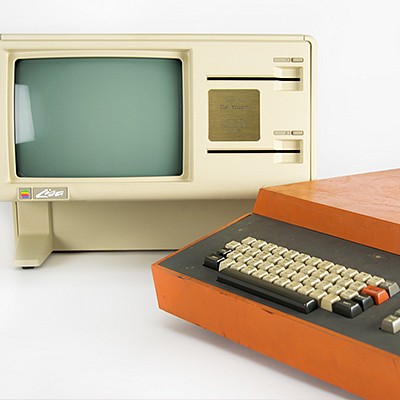Steve Jobs Atari Interoffice Memo
Two ways to bid:
- Leave a max absentee bid and the platform will bid on your behalf up to your maximum bid during the live auction.
- Bid live during the auction and your bids will be submitted real-time to the auctioneer.
Bid Increments
| Price | Bid Increment |
|---|---|
| $0 | $5 |
| $50 | $10 |
| $200 | $25 |
| $500 | $50 |
About Auction
Mar 16, 2023
RR Auction support@rrauction.com
- Lot Description
Original photocopied Atari inter-office memo from Steve Jobs to Stephen Bristow, four pages, 8.5 x 11, August 23, 1975. A memo providing an "Addendum to Final Equations for Astrochart," with "revisions of the final equations for Planetary Coordinates." Jobs observes that "the results are most satisfactory, with the greatest deviance being in Pluto's orbit—still less than 3 degrees!!!" In fine condition.
In 1974, Jobs was perusing the tech industry's help-wanted classifieds in the San Jose Mercury when an Atari headline caught his eye: 'Have fun, make money.' When the unkempt teen showed up in Atari's office—and refused to leave until they gave him a job—the personnel manager didn't know whether to let him in or call the cops. Knowing that the dropout youngster would be cheap to hire, Atari's chief engineer—Pong creator Allan Alcorn—said: 'Send him in!' Since Jobs knew how to solder and wire wrap, he was hired on as a technician.
At Atari, Jobs learned to keep user interfaces simple and intuitive—after all, the company's success was rooted in Pong's simplicity: 'Deposit Quarter, Avoid Missing Ball for High Score.' This sort of elegant user-friendliness would become a hallmark of Jobs's later products—from the one-button mouse to the touchscreen iPhone. He also refined his business acumen—Jobs famously farmed out the engineering of the Atari 'Breakout' prototype to his friend, Steve Wozniak, who implemented several innovative cost-savings circuit designs. Jobs earned a $5000 bonus for the project’s success and reportedly kept it a secret.
In this case, Jobs contributes some "Astrochart" equations to his supervisor, Stephen Bristow—the video game pioneer who helped develop the design concept of Breakout, and assigned Jobs to that project. In an interview with retrogamer.net, Bristow recalled: 'I think Steve Wozniak did most of the 'heavy lifting' on that project but they did a good job. Steve Jobs always had an appreciation of his own ability. He wasn’t allowed onto the production floor because he wouldn’t wear shoes, only sandals. There was a special-ness to him.'
In 1976, Jobs and Woz set out on their own and founded Apple, introducing the personal computer to the masses. This significant early document reveals some of Jobs's early work in the fledgling tech industry, which he would soon revolutionize forever. - Shipping Info
-
Bidder is liable for shipping and handling and providing accurate information as to shipping or delivery locations and arranging for such. RR Auction is unable to combine purchases from other auctions or affiliates into one package for shipping purposes. Lots won will be shipped in a commercially reasonable time after payment in good funds for the merchandise and the shipping fees are received or credit extended, except when third-party shipment occurs. Bidder agrees that service and handling charges related to shipping items which are not pre-paid may be charged to a credit card on file with RR Auction. Successful international Bidders shall provide written shipping instructions, including specified Customs declarations, to RR Auction for any lots to be delivered outside of the United States. NOTE: Declaration value shall be the item’(s) hammer price and RR Auction shall use the correct harmonized code for the lot. Domestic Bidders on lots designated for third-party shipment must designate the common carrier, accept risk of loss, and prepay shipping costs.
-
- Buyer's Premium



 EUR
EUR CAD
CAD AUD
AUD GBP
GBP MXN
MXN HKD
HKD CNY
CNY MYR
MYR SEK
SEK SGD
SGD CHF
CHF THB
THB






